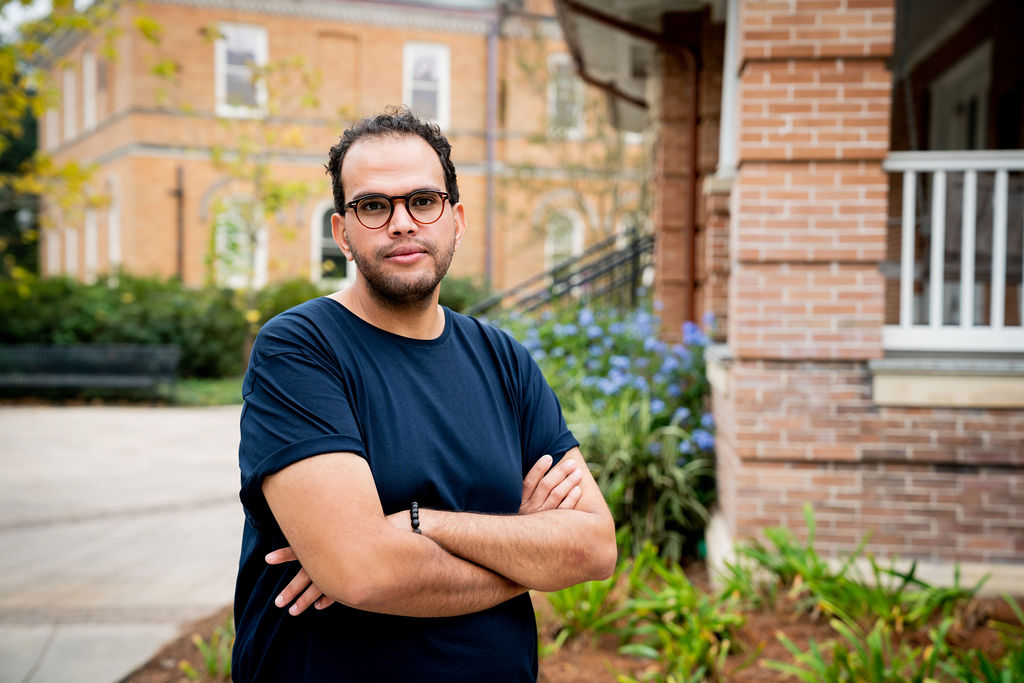Islam Elrabieey, visiting lecturer at Tulane University, was tortured and imprisoned in Egypt for his human rights activism.
Elrabieey, who was born and raised in Benha, Egypt, received his bachelor’s degree in political science at Cairo University and his master’s degree in human rights and democracy from Saint Joseph University in Beirut, Lebanon.
Egypt maintains a system of mandatory military conscription, in which men aged 18 to 30 must serve in the army. The amount of time required to serve depends on the male’s educational level and can span anywhere from one to three mandatory years.
Elabieey said those men are used as “cheap labor” where “you are not really a soldier. They are not teaching you how to fight.”
Elrabieey finished his mandatory conscription in March 2016 after serving 400 days in the army.
“I did nothing,” Elrabieey said. “I was doing some exercises in the morning, and that’s it. You learn how to shoot. You don’t do any strategic training.”
In 2014, Elrabieey joined the Adalah Centre for Rights and Freedoms, a human rights organization that operates in Cairo. Five years later, he began writing for the center’s human rights report to the Universal Periodic Review.
Elrabieey said the Egyptian government works with human rights organizations to submit reports, telling the organizations specifically to “’Write about that. Lie about that.”
In Egypt, there are no protections for citizens who independently submit human rights violation reports to the Universal Periodic Review.
Elrabieey said that he knew there were risks associated with working for Adalah.
“From the first day that I started to work in a human rights organization, I knew that my work might cost me my life,” Elrabieey said.
On Sept. 29, 2019, the founder of Adalah, Mohamed el-Baqer was arrested. El-Baqer was sentenced to four years in prison after authorities said he spread false news on social media.
“Once I was at home, I got mad,” Elrabieey said. “I was in my apartment walking as a madman and hitting the walls because he’s my director and also one of my best friends.”
The day after the arrest, Elrabieey attended a meeting for Adalah. After his meeting, Elrabieey walked back to his home in Cairo which was about an hour away. As Elrabieey was nearly halfway to his home, he was stopped by police in Tahrir Square, the same place where the 2011 Egyptian Revolution erupted.
Elrabieey said he found himself surrounded by officers. They asked him to surrender his telephone and ID and then looked through his social media accounts and private messages.
“They arrested me and sent me to an informal place of detention,” Elrabieey said. “I spent 18 days there. I was handcuffed behind my back and blindfolded for 18 days.”
Elrabieey said those days, when he tried to come to terms with the fact he would be imprisoned for the next five years, were some of the worst of his life.
After 18 days, Elrabieey was sent to a police station, where he spent another two days as a part of enforced disappearance. Enforced disappearance, a common practice in Egypt, is the secret abduction or imprisonment of a person by a state or political organization.
“All of these 20 days, if anything happened to me, there is no proof that the Egyptian government did it because I’m not in the documents,” Elrabieey said.
Elrabieey was moved to a prison after his time in enforced disappearance and was then mistakenly released by authorities on Nov. 2.
“They started calling my father and asking, ‘Where is your son? Can you send him to us? We need to ask him a couple of questions,’” Elrabieey said.
Elrabieey said he hid in a friend’s house for 54 days before flying to Lebanon on March 1, 2020.
Lebanon was only a temporary option for Elrabieey, as he was not eligible to renew his residency permit. After spending eight months in Lebanon, he began contact with a program called Scholars at Risk, a global program that partners with a variety of universities to protect scholars who suffer threats to their lives, liberty and well-being.
“I did a couple of interviews with Tulane University and spoke about my work, and they offered me a job, which I accepted,” Elrabieey said.
At Tulane, Elrabieey is a visiting scholar in the Middle Eastern and North African Studies and Department of Political Science. In addition to his work at Tulane, Elrabieey is an outspoken advocate for Palestinians in the Gaza Strip and a prominent figure in many pro-Palestinian protests around New Orleans.
“If I didn’t give any care to people that face oppression,” Elrabieey said, “then, one day, I will be the next one.”
“I’m advocating for anyone who is oppressed in this world.”




